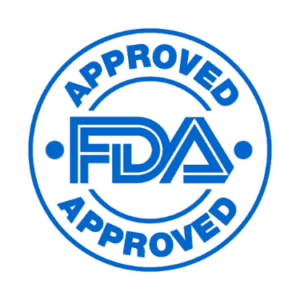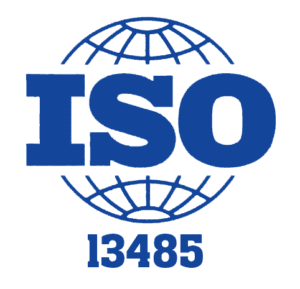In today’s highly regulated dental industry, FDA & ISO Certifications are more than just badges of compliance—they are essential indicators of trust, safety, and global competitiveness. For Vietnam dental labs seeking to serve international markets such as the U.S., Europe, and Australia, these certifications represent both a challenge and an opportunity.
Whether you’re a DSO, dental clinic, or lab looking to outsource dental restorations, understanding these certifications is key to making informed decisions.

Contents
- 1 1. What Are FDA & ISO Certifications?
- 2 3. How Vietnam Dental Labs Are Gaining Competitive Advantage
- 3 4. What to Look For in a Certified Vietnam Dental Lab
- 4 5. FDA vs ISO: What’s the Difference?
- 5 6. Case Study: The Impact of Certification on a U.S. DSO
- 6 7. Why Certifications Will Matter Even More in the Future
- 7 8. Final Thoughts
1. What Are FDA & ISO Certifications?
FDA Certification is issued by the U.S. Food and Drug Administration. It confirms that any medical or dental product entering the U.S. market complies with strict safety and manufacturing standards. For dental labs, this means:
-
Using 100% FDA-approved materials
-
Operating under Good Manufacturing Practices (GMP)
-
Maintaining full traceability and documentation

ISO 13485 Certification, on the other hand, is a globally recognized standard that governs quality management systems in medical device manufacturing. For a dental lab, ISO 13485 ensures:
-
Clear and efficient production workflows
-
Robust risk management procedures
-
Consistent quality control checks
-
Readiness for international compliance
Together, these certifications demonstrate that a dental lab can deliver products that are safe, consistent, and globally acceptable.

2. Why FDA & ISO Certifications Matter in Dental Outsourcing
Outsourcing dental work—such as removable dentures, full arch restorations, and night guards—can significantly reduce costs and increase efficiency. However, it also introduces a layer of risk, especially if the offshore lab lacks quality standards.
By working with a Vietnam dental lab that holds FDA & ISO Certifications, your dental practice or DSO benefits from:
-
Peace of mind knowing materials are biocompatible and safe
-
Reduced remake rates thanks to process consistency
-
Faster turnaround times with fewer errors
-
Enhanced trust with patients and partners
-
Compliance with U.S. and international regulations
Certifications help protect your brand reputation, reduce liability, and ensure better patient outcomes.
3. How Vietnam Dental Labs Are Gaining Competitive Advantage
Vietnam has become a rising star in the global dental outsourcing industry due to its combination of:
-
Skilled technicians trained to international standards
-
Competitive labor costs
-
Growing investment in digital technologies like CAD/CAM and 3D printing
-
Increasing adoption of global compliance frameworks
More Vietnamese labs are now actively pursuing FDA & ISO Certifications to access high-value markets and attract larger partners such as U.S.-based DSOs and dental groups.
Certified labs are better equipped to handle volume orders, integrate with digital workflows, and maintain transparent, professional communication with overseas clients.
4. What to Look For in a Certified Vietnam Dental Lab
Active Certifications
Request up-to-date FDA and ISO 13485 documentation. Make sure the certifying body is legitimate and internationally recognized.
Experience with International Markets
The ideal lab has a portfolio of successfully delivered cases to markets like the U.S., Canada, Australia, or Europe—especially with DSOs.
Product Specialization
Some labs focus on removable prosthetics, others on fixed implant solutions. Choose a partner whose strengths align with your case types.
Turnaround Time and Remake Policy
Look for clear commitments—e.g., 2–3 working days in-lab for digital files, remake rate below 3%.
Communication and Technical Support
Ensure the lab offers responsive English-speaking support, and digital portals to track case status, upload STL files, and manage revisions.

5. FDA vs ISO: What’s the Difference?
While both certifications are quality-focused, they differ in scope and regulatory power.
-
FDA Certification is required for entry into the U.S. market. It focuses on product safety, approved materials, and manufacturing practices.
-
ISO 13485 is an international quality management system standard. It provides a structured framework for consistent product delivery across all markets.
In practice, having both is ideal—especially if you aim to serve patients in the U.S., Europe, and beyond.
6. Case Study: The Impact of Certification on a U.S. DSO
A dental support organization in Texas was outsourcing an average of 200 removable denture cases monthly. After switching to a Vietnam dental lab with both FDA and ISO certifications, they reported:
-
A 30% cost reduction compared to domestic labs
-
A remake rate drop from 6% to below 2%
-
Turnaround time improved by 1–2 days per case
-
Increased patient satisfaction and reduced chairside adjustments
This example highlights how proper certifications do more than satisfy paperwork—they directly improve clinical, operational, and financial results.
7. Why Certifications Will Matter Even More in the Future
As global regulations become stricter and patient expectations grow, FDA & ISO Certifications will continue to rise in importance.
Expect trends such as:
-
Greater enforcement of FDA rules for U.S. imports
-
DSOs requiring compliance as part of vendor onboarding
-
Patients demanding transparency on where restorations are made
-
Digital workflows needing traceability from scan to final delivery
Labs without certifications will find it harder to compete, while certified labs will be the first choice for global dental networks.
8. Final Thoughts
FDA & ISO Certifications are no longer optional—they are essential for any Vietnam dental lab looking to compete on a global scale. These certifications aren’t just about paperwork—they reflect a lab’s commitment to quality, safety, and long-term partnership.
For dental clinics, DSOs, and labs seeking a reliable outsourcing partner, certifications act as a filter to separate true professionals from the rest.
